Latest Work with Curved Roof Design
-
seems to me this would be simpler and maybe even stronger?
-
xrok, the major problem with your approach is that the triangles forming the roof surface actually intersect over the center of the pipe, and to make this happen the beams need to attach to the pipe circumference at different heights from the top of the pipe. The attached images should help to make this clearer. Fred
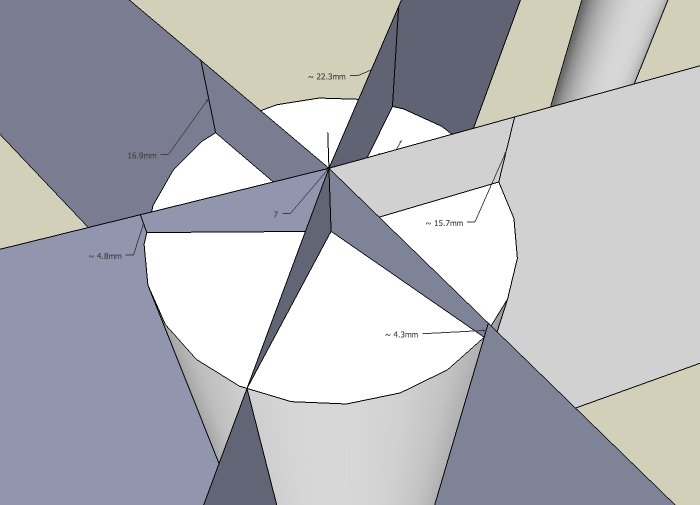
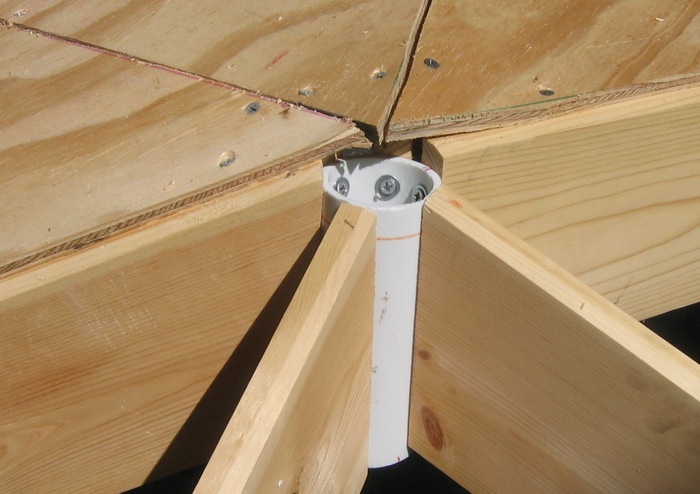
-
could you not cut the top of the pipe at an angle?
or slot the lumber:
-
 how can it be simple when it looks like you would need a degree to figure out those non uniform triangles?
how can it be simple when it looks like you would need a degree to figure out those non uniform triangles?anyway, all the best with your project.
-
xrok1, Some interesting ideas! There are obviously multiple ways to solve this problem. What I'm aiming for is hub hardware that is simple, easy to work with, and strong. Your ideas are definitely heading in that direction. Fred
-
Fred,
Further simplification, using thinner galvanized plate (the same stuff of which joist hangers are made.)
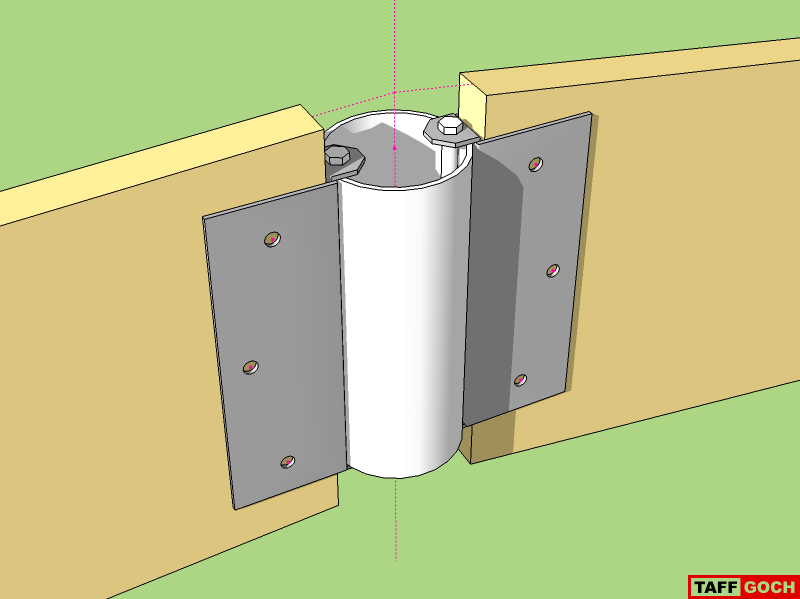
The bolt can be more-simply replaced with a long clevis-pin, making assembly much easier/faster (possibly cheaper, too.)
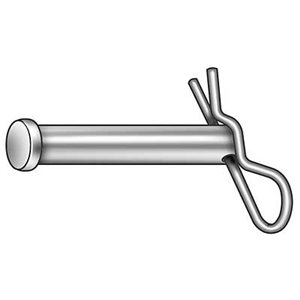
This is pretty close to your original connector design, and can be bent, using a jig and hydraulic press (jack) or vise & hammer. Since it's made of "plate" material, it doesn't have to be as thick as the straps in my first model. Additionally, it permits a more intimate strut-to-pipe fit.Taff
-
xrok1,
Those tiger-grain oak struts should provide for a very impressive (and expensive) ceiling !

-
thats all i could find in the garage!

-
Taff,
Nice clean simple design. Now we just need to get it manufactured in volume. If you get a patent then Simpson will consider.
Fred
-
Maybe useable...
http://www.strongtie.com/products/connectors/bc.asp
if pilot hole is used with bolt, sure you should not, but I think it this case it wount be an issue. -
Had the opportunity to develop my curved roof ideas during an online course on Green Roofs offered by the Boston Architectural College.
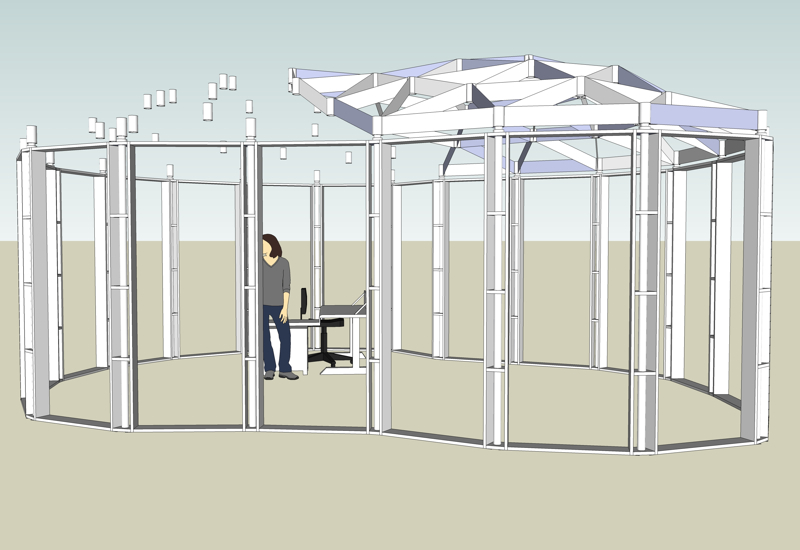
Additional images here: http://dws.editme.com
Still working on a hub connector and a number of other components of this building approach but making slow and steady progress. Another five years, who knows?
Any leads, comments, feedback much appreciated.
Thanks, Fred
Advertisement







